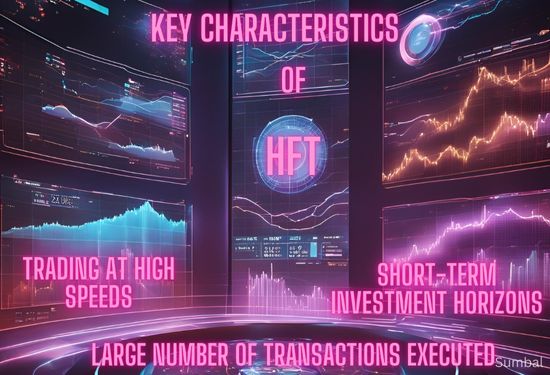Ethical Challenges in HFT
High-frequency trading (HFT) is a form of operation in which multiple transactions are completed in a very short period, frequently fractions of a second. These algorithms can read market conditions, find trades, and complete thousands of trades in the blink of an eye, which will take several trades. HFT has revolutionized the market by executing many trades at a faster pace than any human would be capable of doing.

Fairness and Market Manipulation Concerns
This paper focuses on the first ethical concern around HFT, which is the question of fairness. Due to sufficient technological competency over other market players, such as retail traders, HFT firms can quickly respond to changes within the market. Indeed, this ability enables them to exploit price discrepancies before other market participants can answer, thus even debating the nature of HFT as uneven playing.
Impact on Market Stability
The other concern with HFT is its stability in the markets where its services are available. Even though HFT may enhance liquidity during ordinary trading, it may have a considerable magnification effect in a crisis period. For example, in 2010, the Dow Jones Industrial Average dropped by nearly a thousand points in minutes due to HFT algorithms triggered by market fluctuations that magnified the sell-off process and eliminated vast amounts of money from the market before recovering.

Transparency and Information Asymmetry
Ethical trading requires transparency, and while being active as a market maker, HFT effectively lacks visibility for other market participants. This results in high levels of information asymmetry in HFT since traders who use advanced equipment and data advance their techniques in making trades that are not obvious to other traders. This imbalance makes it difficult for retail investors, small firms, and anything else that does not come close to an HFT firm regarding speed and information.
Ethical Implications for Investors and Market Participants
HFT presents a more elaborate ethical issue concerning the impact of this practice on institutional investors' fulfillment of fiduciary responsibilities. Institutional investors are supposed to manage the funds for the benefit of their clients. Still, the market suffers when HFTs are tilted towards gaining something at the cost of stability. Furthermore, pension fund investment and retirement accounts in HFT pose huge risks and consequences to other average investors who either have little clue or knowledge about such risky practices.

Regulatory Challenges and Possible Solutions
The authorities have many problems regulating the ethical issues connected with HFT. The high velocity and severity of share swapping, coupled with intricate aspects of algorithms, make far-reaching manipulative schemes nearly impossible to identify and guard against in real-time. Current legal measures like SEC rules have recently made spoofing and other related malpractices unlawful. Still, enforcing the laws is difficult due to the complex structure of HFT techniques.
Possible recommendations are enhanced regulation of the trading undertaken and efficiency in supervising this activity with the help of technologies. Also, some critics have suggested a ‘speed limit’ in trading, calling for minor impediments to trading speeds that will act to depress the effectiveness of HFT. An example of the approach is in the IEX exchange, where a slight delay is imposed on trading to prevent HFT firms from taking advantage of ordinary traders.
(Writer:Frid)





